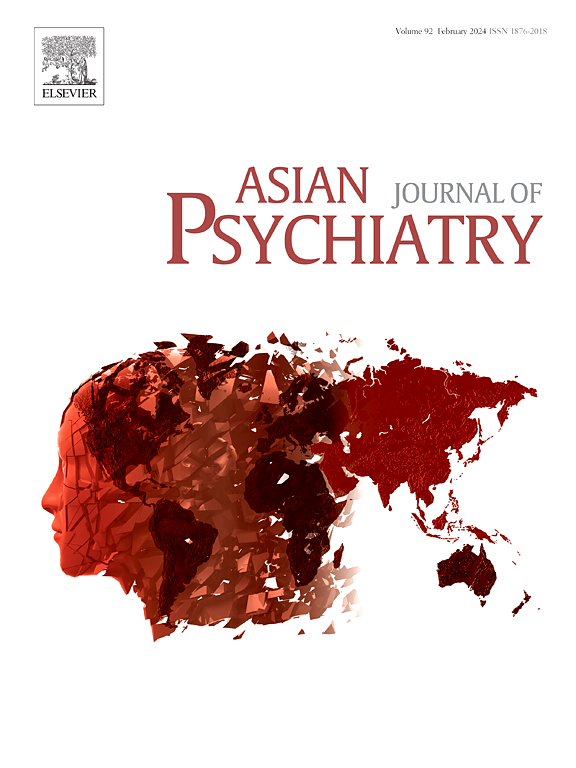Can AI replace clinician-rated depression scales? The psychometric properties of HAMLET – Hamilton Large-Language-Model Evaluation Tool
IF 4.5
4区 医学
Q1 PSYCHIATRY
引用次数: 0
Abstract
Background
The Hamilton Depression Rating Scale (HAMD) is the gold standard for assessing depression but requires clinician administration, limiting its accessibility. Large language models (LLMs) offer potential for automated, valid assessments. We developed HAMLET (Hamilton Large-language-model Evaluation Tool), an interactive LLM-based tool designed to replicate the HAMD-17, and compared its results with those obtained by a psychiatrist.
Methods
HAMLET utilizes Qwen-Max in the temperature of 0.7 and a top-p value of 0.6, guided by structured prompts engineered via clinician-supervised tuning. 60 patients with Major Depressive Disorder completed: (1) HAMLET, (2) clinician-rated HAMD-17, and (3) PHQ-9. Agreement was assessed using Intraclass Correlation Coefficient (ICC), Bland-Altman plots, and Gwet’s AC2. Correlations with HAMD and incremental validity beyond the PHQ-9 were evaluated.
Results
HAMLET demonstrated strong overall agreement with clinician-rated HAMD scores (ICC=0.911; 95 % CI: 0.855–0.946). It outperformed the PHQ-9 in correlating with HAMD scores (r = 0.92 vs 0.79; Steiger’s Z = 3.798, p < 0.001) and demonstrated incremental validity (ΔR²=0.252). Item-level agreement (Gwet’s AC2) was > 0.60 for all items, though was lower for sensitive questions.
Conclusion
HAMLET is the first LLM framework to autonomously conduct HAMD-17 assessments demonstrating substantial agreement with clinician ratings. It combines the rigor of clinician-rated scales with the accessibility of self-report tools. This demonstrates the feasibility of LLMs for scalable, low-cost psychiatric assessment. Future work should address contextual limitations and explore multimodal integration.
人工智能能否取代临床评定的抑郁量表?HAMLET - Hamilton大语言模型评价工具的心理测量特性
汉密尔顿抑郁评定量表(HAMD)是评估抑郁症的黄金标准,但需要临床医生的管理,限制了其可及性。大型语言模型(llm)为自动化、有效的评估提供了可能。我们开发了哈姆雷特(汉密尔顿大语言模型评估工具),这是一个基于法学硕士的交互式工具,旨在复制HAMD-17,并将其结果与精神病学家获得的结果进行比较。shamlet利用Qwen-Max在温度为0.7,top-p值为0.6的条件下,通过临床医生监督的调谐设计结构化提示引导。60例重度抑郁症患者完成了(1)HAMLET,(2)临床评定的HAMD-17, (3) PHQ-9。使用类内相关系数(ICC)、Bland-Altman图和Gwet的AC2来评估一致性。评估与HAMD和超过PHQ-9的增量效度的相关性。结果shamlet与临床评定的HAMD评分总体上表现出很强的一致性(ICC=0.911; 95 % CI: 0.855-0.946)。其与HAMD评分的相关性优于PHQ-9 (r = 0.92 vs 0.79; Steiger’s Z = 3.798,p <; 0.001),并表现出递增效度(ΔR²=0.252)。所有项目的项目级一致性(Gwet的AC2)为>; 0.60,尽管敏感问题较低。哈姆雷特是第一个自主进行HAMD-17评估的法学硕士框架,与临床医生的评分基本一致。它结合了临床医生评定量表的严谨性和自我报告工具的可及性。这证明了llm在可扩展、低成本的精神病学评估方面的可行性。未来的工作应该解决上下文限制并探索多模式集成。
本文章由计算机程序翻译,如有差异,请以英文原文为准。
求助全文
约1分钟内获得全文
求助全文
来源期刊

Asian journal of psychiatry
Medicine-Psychiatry and Mental Health
CiteScore
12.70
自引率
5.30%
发文量
297
审稿时长
35 days
期刊介绍:
The Asian Journal of Psychiatry serves as a comprehensive resource for psychiatrists, mental health clinicians, neurologists, physicians, mental health students, and policymakers. Its goal is to facilitate the exchange of research findings and clinical practices between Asia and the global community. The journal focuses on psychiatric research relevant to Asia, covering preclinical, clinical, service system, and policy development topics. It also highlights the socio-cultural diversity of the region in relation to mental health.
 求助内容:
求助内容: 应助结果提醒方式:
应助结果提醒方式:


